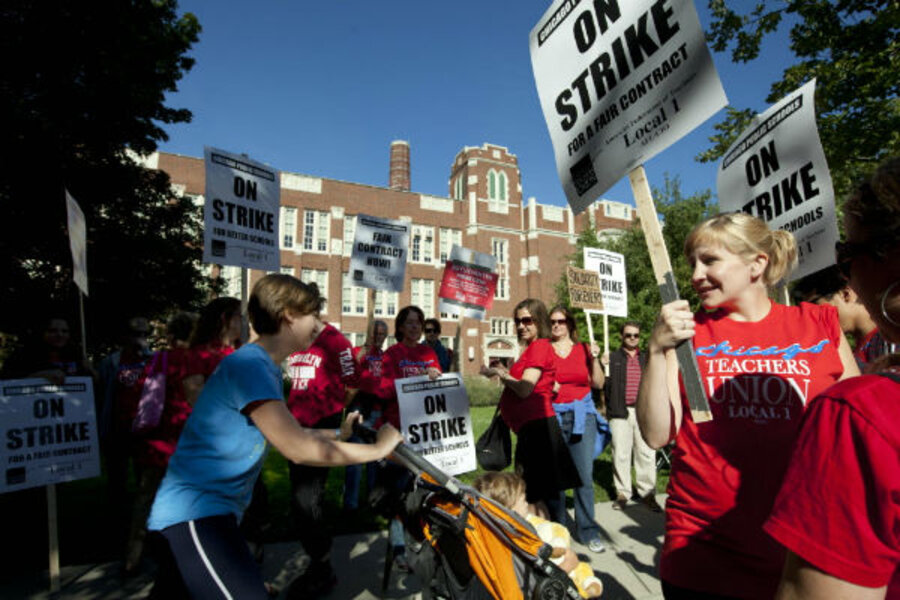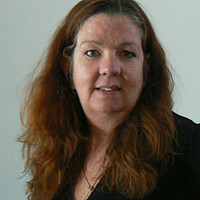Chicago teachers strike: Mom’s long view of city’s work stoppages
Loading...
| Chicago
In the 1980s I covered three Chicago teacher strikes as an education reporter for a community newspaper. Today, 25 years after the last strike I reported on, I am watching as a parent.
I’ve spent a lot of time thinking about what is different about this strike, and I’m not sure that watching it from this parental angle is what makes it different. Two things have changed: In the 1990s, most of the issues were around salaries and benefits. And in those days parents were largely on the sidelines and the children were in the middle.
RELATED: 5 myths about bullying - what you need to know
Today, both the teachers and the Chicago Board of Education say that it’s no longer about the money. It’s about class size, standardized testing, charter schools, and teacher evaluation. It’s about a steady stream of policies – from charter schools to more tests to abruptly shutting down schools without parent involvement. Parents understand gang boundaries; the suits downtown do not.
Parents get it. Most have experienced that hollowed out feeling on the first day of school when leaving a wide-eyed six-year-old in a classroom with 35 other six year-olds and one adult. We learn about “high stakes testing” when we see the 10-year-old worry over a test that will determine whether or not he or she gets into a selective enrollment middle school, which would ensure a similar enrollment in high school, which would have a direct impact on where he or she went to college. For some kids, it determines whether or not they go to college.
And they want more tests? Parents see how these tests shape their education long before they even have to take them. Preschoolers and kindergarteners suffer lockdowns with no recess, quiet lunches, no music, or dancing, or loud talking while the Big Kids take the test. They practice filling in Scantrons and watching the clock in first grade. I told my frustrated first-grader to take his time with his math homework, and then learned he was just practicing timed tests. We understand “Race to the Top” better than our elected officials think we do.
When the 1987 strike ended, some say it was parent outrage that forced the two sides to settle. But that happened three weeks into the strike. Parents have been angry about tests and class size for years, and seeing this taken to a national discussion has been somewhat cathartic.
On the third day of the current walkout, parents from the private University of Chicago Lab schools – where Mayor Rahm Emanuel sends his kids – joined teachers on the picket line at the school where Education Secretary Arne Duncan sent his kids before he went off to Washington. They volunteered at the hastily organized camps in a nearby neighborhood club for parents who don’t want to cross the picket line. “Our teachers don’t get subjected to these evaluations and our kids don’t get tested the way they do in public schools,” said a parent volunteering at the camp whose children attend the Lab schools and not public schools. She just wants to support parents in this crisis.
RELATED: Are you a Helicopter Parent? Take our quiz!
Apparently Mr. Emanuel’s disconnect extends beyond public schools teachers and parents.
These past few days have been difficult as parents scramble for short-term solutions and pray for longer ones. I won’t predict how long the teachers will stay out, or what the outcome will be, but I hold out hope, remembering that the long strike in 1987 resulted in school reform. That reform created Local School Councils (LSCs) where parents worked with teachers, they hired (and fired) their principals, and approved the school budget. The long-term result is that parents are very involved and have a lot invested in the issues on the table. Mayor Emanuel doesn’t understand that the outrage of parents won’t come three weeks into the strike; it’s already there.
The Christian Science Monitor has assembled a diverse group of the best family and parenting bloggers out there. Our contributing and guest bloggers are not employed or directed by the Monitor, and the views expressed are the bloggers' own, as is responsibility for the content of their blogs.






